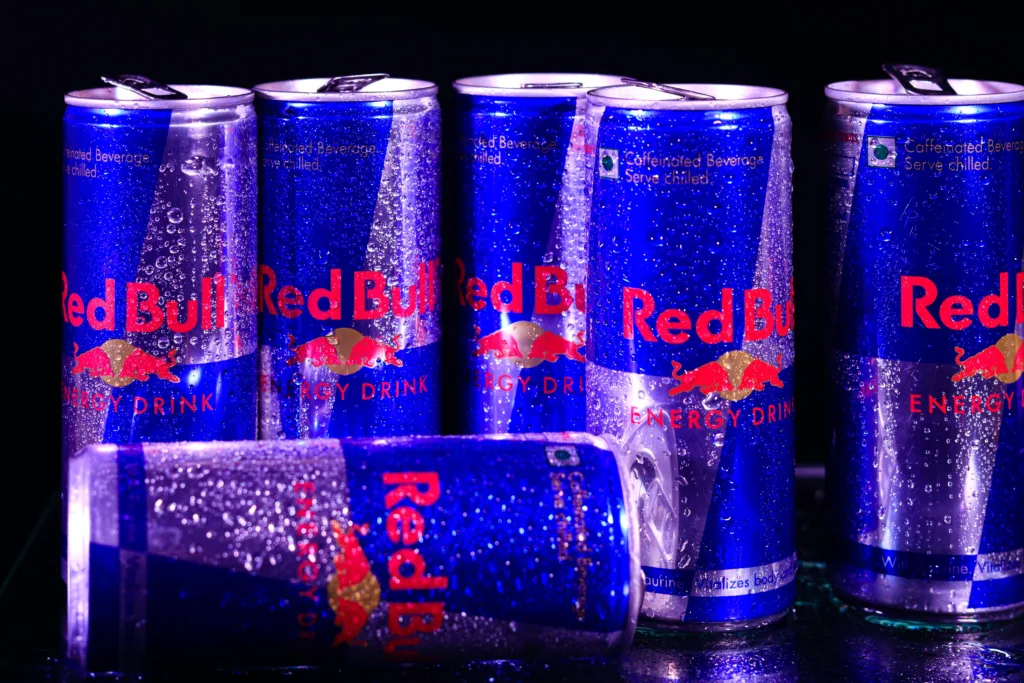Energy drinks have become increasingly popular among children in recent years. Their widespread consumption is a significant , albeit, poorly recognized health risks. Parents and caregivers need to understand the dangers associated with these beverages. With better understanding, they can take decisive measures to protect their children’s well-being (grandchildren are also included since what happens in grandma’s house may sometimes be seen as permissible). I will discuss the various aspects of energy drinks. We will also shed light on the potential harm they can cause to young individuals and talk about ways to avoid the damage it is causing. Stay with me. Also share this to someone you love. They WILL benefit from it.
Understanding Energy Drinks
In today’s fast-paced world, it’s no surprise that people are constantly looking for ways to boost their energy levels and stay alert. One popular solution that has gained a large amount of popularity in recent years is energy drinks. These carbonated beverages are specially formulated to provide an instant energy boost and increase alertness. But what exactly are energy drinks and why are they so appealing to both children and their parents and why do parents just permit it in the young ones?
What are Energy Drinks?
Energy drinks are carbonated beverages that contain high amounts of caffeine, sugar, and other stimulant substances. They are designed to, and they do provide an instant energy boost and increase alertness for most people who indulge in them. The combination of caffeine and sugar in these drinks is believed to stimulate the central nervous system, giving individuals a temporary feeling of energy and alertness. These are not the only chemicals in them but they are a good start.
Energy drinks contain caffeine and also they often include other ingredients such as taurine, guarana, and ginseng. These additional substances are believed to enhance the effects of caffeine and provide an extra kick-shove of energy.
Many popular brands market their products as a source of enhanced performance (yes performance) and vitality. They often use catchy slogans and vibrant packaging to entice consumers into trying their products. Some even claim to improve mental focus, physical endurance (who would not want that?), and overall well-being.
The Popularity of Energy Drinks Among Children
While energy drinks are popular among individuals of all ages, their appeal among children cannot be underestimated. Brightly colored packaging, catchy slogans, and the promise of increased energy make them attractive to young individuals seeking a quick pick-me-up.
Furthermore, aggressive marketing strategies specifically target this age group, further contributing to the popularity of energy drinks among children. Advertisements featuring popular athletes and celebrities can make these beverages seem cool and desirable to impressionable young minds.
However, it’s important to note that energy drinks are not suitable for children due to their high caffeine and sugar content. The American Academy of Pediatrics recommends that children and adolescents avoid consuming energy drinks altogether, as they can have harmful effects on their developing bodies, dentition and minds.
Studies have shown that excessive or even moderate consumption of energy drinks among children and teenagers can lead to various health issues, including increased heart rate, high blood pressure, and other cardiac events as we would normally expect in older adults. Additionally, regular consumption of these drinks can disrupt sleep patterns and contribute to dehydration. A poorly hydrated person is a suboptimally functioning person since we are composed mainly of water. That is a pool that ought to be replenished frequently.
It’s crucial for parents and caregivers to educate children about the potential risks associated with energy drinks and encourage healthier alternatives for boosting energy, such as regular exercise, balanced nutrition, and adequate sleep.
In conclusion, energy drinks are carbonated beverages that contain high amounts of caffeine, sugar, and other stimulant substances. They are marketed as a source of enhanced performance and vitality, appealing to individuals of all ages. However, it’s important to be aware of the potential risks, especially when it comes to children and adolescents. Encouraging healthier alternatives and educating young individuals about the potential dangers can help promote their overall well-being.

The Health Risks of Energy Drinks
The Impact on Physical Health
The consumption of energy drinks can have severe implications for a child’s physical health. The high caffeine content can lead to increased heart rate, hypertension, and even cardiac arrhythmias. This means that the heart is forced to work harder and can result in irregular heartbeats, putting the child at risk for heart-related complications.
In some cases, excessive consumption can result in dehydration, electrolyte imbalances, and kidney problems. When energy drinks are consumed in large quantities, the body can lose more water than it takes in, leading to dehydration. Electrolytes, such as sodium and potassium, are essential for maintaining proper fluid balance in the body. Energy drinks can disrupt this balance, causing electrolyte imbalances that can have serious health consequences. The kidneys, which are responsible for filtering waste from the blood, can also be affected by excessive consumption of energy drinks, potentially leading to kidney problems.
Moreover, the combination of caffeine and sugar can lead to obesity and tooth decay. Many energy drinks contain an alarming amount of calories, far exceeding the daily recommended intake for children. Regular consumption of these high-calorie drinks can contribute to weight gain and increase the risk of obesity. The high sugar content in energy drinks can also lead to tooth decay, as bacteria in the mouth feed on the sugars and produce acids that erode the tooth enamel.
These factors not only pose immediate health risks but also increase the likelihood of long-term health issues such as diabetes and cardiovascular diseases. Obesity, caused by the excessive consumption of energy drinks, is a major risk factor for developing type 2 diabetes. Additionally, the high caffeine content in energy drinks can have detrimental effects on the cardiovascular system, increasing the risk of heart diseases later in life.

The Impact on Mental Health
While energy drinks may provide a temporary surge of energy, they can also have adverse effects on a child’s mental well-being. The high caffeine content can disrupt healthy sleep patterns, leading to insomnia and fatigue. Lack of quality sleep can impair cognitive abilities, affect mood, and contribute to overall mental health problems.
Additionally, the combination of stimulants found in energy drinks can increase feelings of anxiety, irritability, and difficulty concentrating. These psychological symptoms, particularly in children who are still developing emotionally, can have significant long-term consequences if not addressed early on. Chronic anxiety and irritability can interfere with a child’s ability to socialize, perform well academically, and maintain healthy relationships.
Furthermore, the excessive consumption of energy drinks can lead to a cycle of dependence and withdrawal symptoms. Energy drinks, with their high caffeine content, can create a sense of dependence and tolerance in children, leading them to consume increasing amounts to achieve the same desired effects. When energy drinks are not available or consumed in smaller quantities, withdrawal symptoms such as headaches, irritability, and difficulty concentrating can occur.
It is crucial to recognize the potential risks associated with energy drink consumption in children and take appropriate measures to protect their physical and mental well-being. Educating children, parents, and healthcare professionals about the dangers of excessive energy drink consumption is essential for promoting healthier lifestyle choices and safeguarding the future health of our younger generation.

Case Studies: Real-Life Consequences
Stories of Energy Drink-Related Illnesses
There have been numerous reports of children experiencing severe health complications after consuming energy drinks. These stories serve as a stark reminder of the potential dangers involved. There have been cases of heart palpitations, seizures, and even hospitalizations have been linked to excessive consumption of these beverages.
One particularly alarming case involves a 15-year-old boy named Alex. He had a habit of consuming multiple energy drinks every day to keep up with his demanding school schedule and extracurricular activities. However, his energy drink consumption took a toll on his health. One day, Alex experienced a sudden and intense heart palpitation that left him gasping for breath. His panicked parents rushed him to the emergency room, where doctors determined that his excessive energy drink consumption had caused an irregular heartbeat. Alex had to undergo a series of medical treatments and was advised to completely avoid energy drinks in the future.
Another case involves a 12-year-old girl named Emily. She regularly consumed energy drinks to stay awake during late-night study sessions. However, her reliance on these beverages had serious consequences. One night, Emily had a seizure after consuming a particularly large amount of energy drinks. On arrival and evaluation at the hospital, the doctors discovered that the high levels of caffeine and other stimulants in the drinks had triggered the seizure. Emily’s parents were devastated, but also regretted not being aware of the potential dangers of energy drink consumption.
The Long-Term Effects of Energy Drink Consumption
Long-term studies on the effects of energy drink consumption in children are still ongoing. However, preliminary research suggests a strong correlation between regular consumption and an increased risk of obesity, cardiovascular diseases, and substance abuse. It is evident that the consequences of these beverages extend far beyond the immediate impact.
One ongoing study conducted by a team of researchers at a renowned university aims to investigate the long-term effects of energy drink consumption on a large group of children. The study involves tracking the health and lifestyle habits of thousands of participants over several years. Preliminary findings from this study have already shown a concerning link between regular energy drink consumption and an increased risk of obesity. The researchers speculate that the high sugar and calorie content in these beverages contribute to weight gain and metabolic disturbances.
Another area of concern is the impact of energy drinks on cardiovascular health. A recent study published in a prestigious medical journal found that adolescents who consumed energy drinks regularly had higher blood pressure and increased heart rate compared to their peers who did not consume these beverages. These findings raise serious concerns about the potential long-term cardiovascular consequences of energy drink consumption in children.
Energy drinks can pose physical health risks and their consumption has been associated with an increased risk of substance abuse in heavy consumers. A study conducted by a team of psychologists found that teenagers who regularly consumed energy drinks were more likely to engage in risky behaviors, including alcohol and drug use. The researchers suggest that the high levels of caffeine and other stimulants in energy drinks may influence the brain’s reward system, making individuals more susceptible to substance abuse.
Overall, the evidence from case studies and ongoing research paints a concerning picture of the real-life consequences and long-term effects of energy drink consumption in children. It is crucial for parents, healthcare professionals, and policymakers to be aware of these risks and take necessary measures to protect the health and well-being of children.

The Role of Advertising in Energy Drink Consumption
Energy drinks have become increasingly popular among individuals of all ages, particularly among young people. One cannot deny the significant role that advertising plays in shaping children’s attitudes towards these beverages. There are clever marketing campaigns that have been designed to specifically target young individuals, using various platforms to capture their attention and create a sense of desirability around the product.
How Energy Drinks are Marketed to Children
When it comes to marketing energy drinks to children, companies employ a variety of strategies to ensure their message reaches its intended audience. Social media platforms, for example, have become a powerful tool in advertising campaigns. With the majority of children being active users of platforms such as Instagram and TikTok, companies leverage these channels to showcase their products in a visually appealing and relatable manner.
In addition to social media, sports events have also become a prime opportunity for energy drink companies to target young consumers. By sponsoring popular sporting events, companies can associate their brand with athleticism, excitement, and success. This not only increases brand visibility but also creates a subconscious connection between energy drinks and physical prowess in the minds of impressionable young individuals.
Furthermore, energy drink companies have recognized the power of popular television shows in reaching their target audience. By strategically placing their advertisements during programs that are popular among children and adolescents, companies can effectively capture their attention and instill a sense of desire for their products.
The Influence of Celebrity Endorsements
Celebrity endorsements play a significant role in shaping consumer behavior, and the energy drink industry is no exception. When influential figures, such as athletes or social media influencers, promote these beverages, children may perceive them as safe and trendy. This perception, in turn, fuels their desire to consume energy drinks.
It is crucial to recognize the impact of celebrity influence in combating the harmful effects of energy drink consumption among children. While celebrities may unintentionally contribute to the allure of these beverages, it is important for parents, educators, and health professionals to provide accurate information about the potential risks associated with excessive consumption of energy drinks.
By understanding the tactics used in advertising and the influence of celebrity endorsements, it becomes possible to counteract the effects of these marketing strategies. Education and open conversations about the potential health risks can empower children to make informed choices and develop a critical mindset when it comes to consuming energy drinks.
On a final note, advertising plays a significant role in shaping children’s attitudes towards energy drinks. Clever marketing campaigns, targeting young individuals through various platforms, create a sense of desirability around these beverages. Additionally, celebrity endorsements further contribute to the allure of energy drinks among children. Recognizing the impact of advertising and celebrity influence is essential in promoting responsible consumption of these drinks. Safeguarding the well-being of young individuals ought to be a priority.
How to Protect Your Child from Energy Drink Dangers
Educating Your Child About the Risks
Education is vital in empowering children to make informed decisions. Engage in open and honest discussions about the potential dangers of energy drinks, emphasizing the associated health risks. Encourage critical thinking skills and teach children how to read and interpret nutritional labels to make informed choices regarding their beverage consumption.
Healthy Alternatives to Energy Drinks
Instead of relying on energy drinks, encourage your child to adopt healthier alternatives that offer sustained energy levels without the harmful effects. A balanced diet, regular exercise, and adequate sleep are fundamental pillars of maintaining optimal energy levels. Additionally, natural fruit juices, herbal teas, and water are excellent alternatives to satisfy thirst and hydration needs.
The dangers of energy drink consumption in children are significant and must not be overlooked by anyone. The negative impact these beverages can have on physical and mental health should serve as a wake-up call for parents and caregivers. By understanding the risks, educating children about the dangers, and promoting healthy alternatives, we can protect our children and ensure their well-being for years to come.
FAQ 1: Are energy drinks safe for adults?
Answer: While energy drinks can be consumed by adults, they should be consumed in moderation. Excessive consumption can lead to health issues, including increased heart rate and high blood pressure.
FAQ 2: Do energy drinks have any benefits for adults?
Answer: Energy drinks are primarily designed for a quick energy boost, but their benefits can be limited. They may provide a temporary increase in alertness and energy, but the long-term effects are often negativ
FAQ 3: Can adults use energy drinks as a substitute for coffee or tea?
Answer: Energy drinks can be an alternative source of caffeine, but they often contain higher caffeine levels than coffee or tea. Adults should be cautious and limit their consumption to avoid caffeine-related health issues.
FAQ 4: What are the potential health risks for adults who consume energy drinks regularly?
Answer: Regular consumption of energy drinks in adults can lead to health issues such as increased heart rate, high blood pressure, sleep disturbances, and, in some cases, even heart problems.
FAQ 5: Are there specific groups of adults who should avoid energy drinks altogether?
Answer: Adults with certain medical conditions, such as heart problems, high blood pressure, or caffeine sensitivities, should avoid energy drinks. Pregnant and breastfeeding women should also be cautious.
FAQ 6: Do energy drinks have any nutritional value for adults?
Answer: Energy drinks often lack essential nutrients and can be high in sugar and calories. For adults seeking nutritional benefits, healthier alternatives like herbal teas or natural juices are recommended.
FAQ 7: How can adults reduce their dependence on energy drinks for energy?
Answer: Adults can reduce their dependence on energy drinks by improving their sleep quality, maintaining a balanced diet, staying hydrated, and practicing stress management techniques.
FAQ 8: Are there any interactions between energy drinks and medications commonly taken by adults?
Answer: Some medications may interact negatively with the caffeine and stimulants in energy drinks. Adults taking medications should consult with their healthcare provider regarding potential interactions.
FAQ 9: Can adults mix energy drinks with alcoholic beverages safely?
Answer: Mixing energy drinks with alcohol can be dangerous, as it can mask the depressant effects of alcohol, leading to excessive alcohol consumption and potential health risks.
FAQ 10: What are some healthier alternatives for adults looking to boost their energy levels?
Answer: Healthier alternatives for adults include consuming small amounts of caffeine from sources like coffee or tea, staying hydrated with water, and maintaining a balanced diet and regular exercise routine for sustained energy.
Thank you for reading this post, don't forget to subscribe to our free newsletter
!
